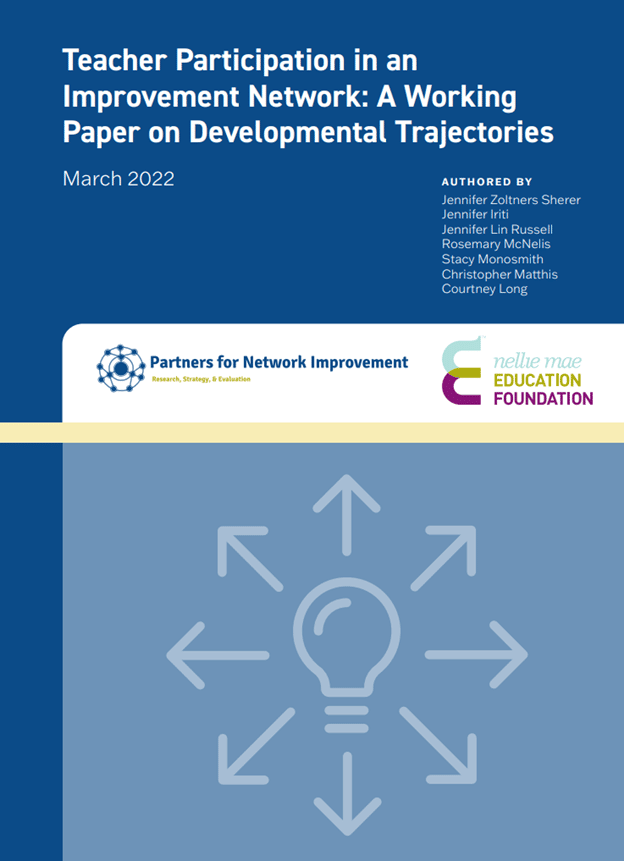Teacher Participation in an Improvement Network: A Working Paper on Developmental Trajectories
March 2022
Changing classroom instruction is a high-leverage opportunity for improving education at scale. For this reason, educators across the United States are engaged in networks that aim to improve teaching and learning. In networked improvement communities (NICs), educators work collectively to improve learning opportunities for students using improvement science methods (Bryk, Gomez, Grunow & LeMahieu, 2015; Gomez, Russell, Bryk, LeMahieu, & Mejia, 2016; Russell, Bryk, Dolle, Gomez, LeMahieu, & Grunow, 2017; Russell, Bryk, Peurach, Sherer, LeMahieu, Khachatryan, Sherer, & Hannan, 2019). NICs go beyond the typical workshop-based professional development to support collective learning in which educators:
1. Commit to a shared goal that is tied to a measurable outcome
2. Use disciplined inquiry methods anchored in concrete data to enact high-leverage instructional routines
3. Experiment to find which practices work under which conditions

